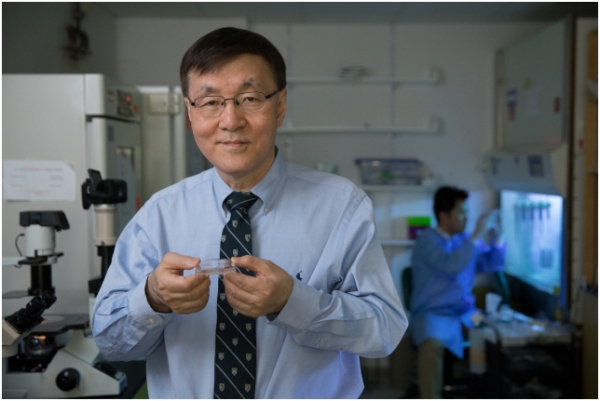Patient’s Own Cells Reprogrammed

A novel breakthrough treatment for Parkinson’s disease has been discovered by a Korean American scientist, Kim Kwang-soo. Professor Kim and his team have successfully found a way to treat Parkinson’s disease, which has been known to be incurable, by reprogramming a patient’s own cells.
The Korea Advanced Institute of Science and Technology (KAIST) announced on June 2 the results of the historic stem cell treatment developed by Kim, professor at Harvard Medical School and director of Molecular Neurobiology Laboratory at McLean Hospital and his team. Kim received both his Ph.D. and M.S. from KAIST in biological science and engineering. He is currently a chair-professor at KAIST and a member of an advisory committee for the president of KAIST.
Parkinson’s disease occurs when nerve cells that produce brain chemical known as dopamine break down or die. Professor Kim and his team used the technique of reprogramming the patient’s own skin cells to become stem cells that are lost during the course of the disease. This process is called differentiation. These stem cells, then, can mature into different types of body cells. Kim’s team differentiated the stem cells to take on the characteristics of dopamine-producing nerve cells and surgically implanted them into the patient’s brain.
Professor Kim conducted two surgeries in 2017 and 2018, requested by the U.S. Food and Drug Administration (FDA) to transplant replaced dopamine-producing nerve cells into a 69-year-old man suffering from Parkinson’s disease. This was the first-ever transplant surgery of dopamine-producing nerve cells that did not require drugs to suppress the immune response. The patient who received the transplant reported improvements in his motor abilities which allowed him to tie his shoes, swim and even ride a bicycle.
The stunning achievement of Professor Kim and his team was reported in The New England Journal of Medicine, the most prestigious medical journal in the world, on May 14.


